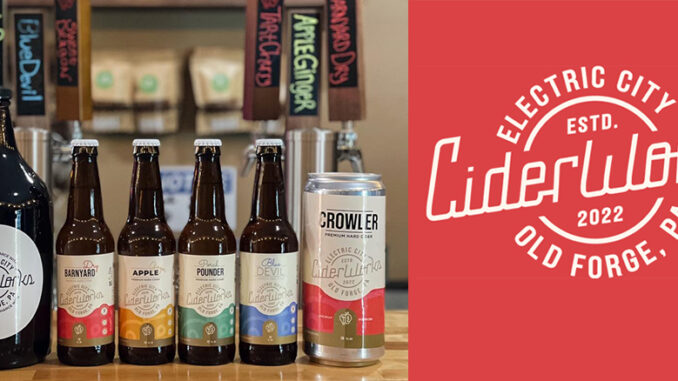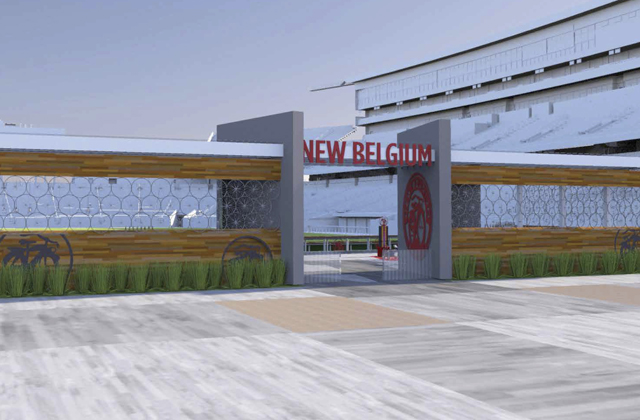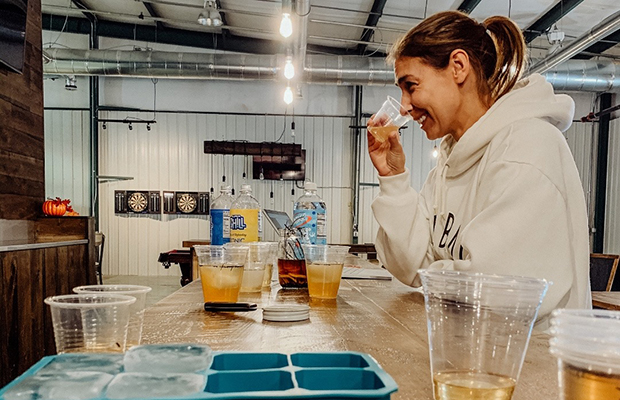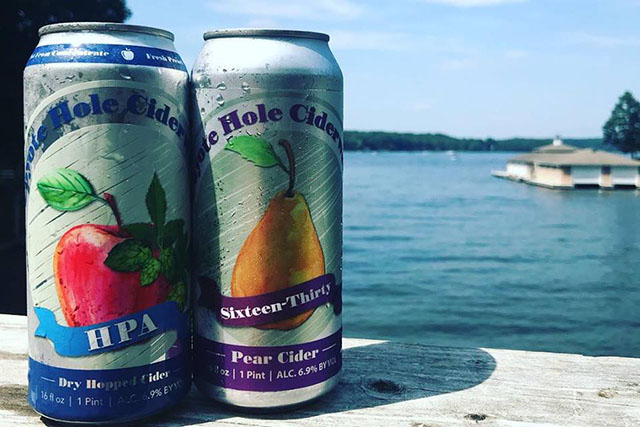
This is a part of a monthly series of Q&As with members of the cider community from across the U.S. Brewer Magazine & Cider Business will share business and personal insights from decision makers in the cider industry to help you get to know each other better and learn more to better develop your own brand.
Tom Borthwick, Co-Founder, Electric City Ciderworks — Old Forge, Pennsylvania
BREWER: What recent significant changes in the cider industry have you noticed, and how has your cidery adapted to it?
BORTHWICK: We are about to hit our three-year anniversary, so I don’t know that we have a macro view of trends just yet. Locally speaking, there aren’t very many cideries and the ones based at a home orchard tend not to get their products out for distribution elsewhere. From a financial standpoint, because our taproom is small, we needed to have robust sales at local bars and restaurants. So when it comes to adaptation, making sure our product is available outside our flagship is very important.
BREWER: What core values guide your decision-making, and how do you ensure those values show up in your cider and business practices?
BORTHWICK: We care about quality, authenticity, and craft. We don’t shortcut process, we source locally whenever possible, and we trust our palates. Operationally, that means we are constantly tasting the product throughout fermentation, then cold crashing, then conditioning.
BREWER: How do you cultivate a strong team culture, and what do you think leaders often overlook when it comes to keeping employees engaged and inspired?
BORTHWICK: We try to create a space where people know why their work matters, feel ownership in the product, and have fun doing it. That means giving people room to grow and create. A lot of leaders overlook the fact that your team can’t care about the work if you only ever treat it like a job. I was a union leader before I went into business for myself and I know that treating employees well matters. And I don’t mean that “we’re all family” kind of corporate jargon everybody hates. We trust the people we work with to do what they know how to do. You have to tap into passion for the product, as well as the pride in creating it.
BREWER: In your view, what responsibility does a cidery have to its local community or the wider industry, and how do you try to live that out?
BORTHWICK: A cidery should add value to the community around it. For us, that means supporting local. We sponsor local events, partner with other small businesses, and aim to be good neighbors. Industry-wide, we work with other cidermasters and brewmasters to discuss product and methodology and the trials and travails of our business world.
BREWER: What are you sippin’ on right now from your cidery that you really enjoy?
BORTHWICK: Our cidermaster tragically passed away unexpectedly in May. Literally hours before he passed, he sent us his final recipe, which wound up becoming our Strawberry Lemon Cider. It is excellent and tastes just like summer. We know our boy, Scott Lodwick, would be proud.
BREWER: When you think 10–15 years down the line, what do you want your cidery to be known for, and what steps are you taking now to move in that direction?
BORTHWICK: I want Electric City Ciderworks to be known as one of the best craft cideries in the country. The kind of place people travel to because they care about flavor, story, and process. To get there, we know we’ll need to invest in a larger production facility, especially since we are opening a second location in Scranton, from where we get our name. We’re building a brand based on quality, rooted in craft and community.






Be the first to comment